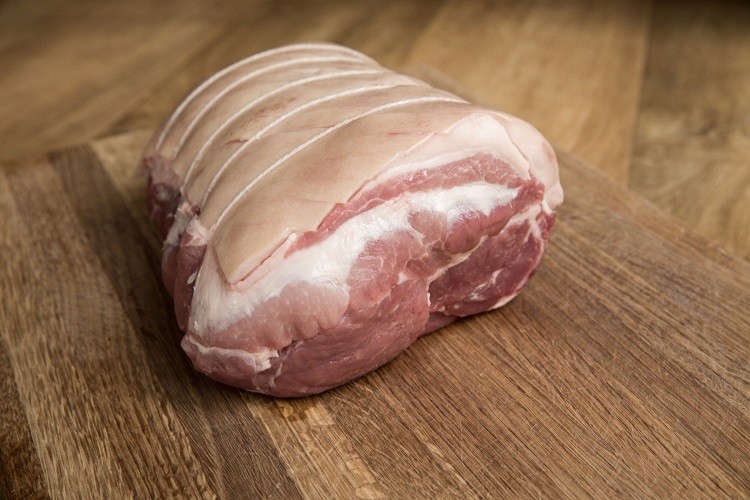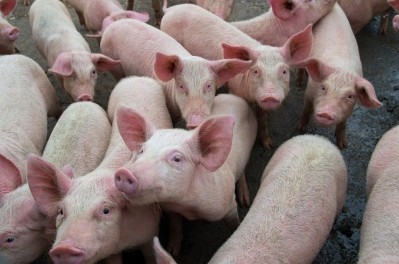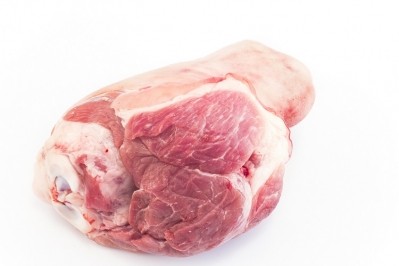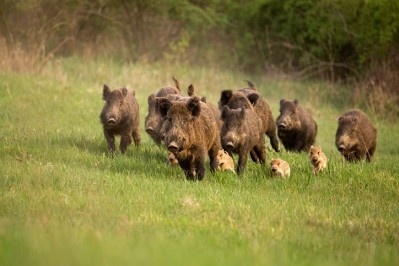Can eating pork from ASF-infected pigs make you sick?

On 10 September 2020, Germany confirmed its first case of African Swine Fever (ASF), detected in a wild boar near the Polish border.
As no cure or vaccine is currently available for the virus, the German Ministry of Agriculture is rolling out a containment plan, which includes reducing wildlife populations and wild boar management. In doing so, Germany hopes to give itself the best chance of eradicating ASF within its borders.
China, where the first case of ASF was reported in August 2018, has been unsuccessful in preventing the spread – and serves as an example of what could go wrong if Germany’s containment measures are not prioritised.
The highly contagious viral disease of domestic and wild pigs has since swept across China, with market research firm Gira estimating the nation’s pork production is down approximately 27 million tonnes between 2018 and 2019.
With ASF now confirmed on German soil, consumers unfamiliar with the virus are understandably concerned. The German Federal Institute for Risk Assessment (BfR) has therefore publicly responded to a selection of frequently asked questions, detailing infection risks and offering guidance on how to prevent the spread.
What is African Swine Fever, and when did it reach Europe?
ASF, the name given to a disease that affects domestic pigs and wild boar, is caused by a virus. The disease is classified as epizootic, and as a result its controlled and regulated in both animal health law and swine fever regulation.
Infection of ASF is often lethal, and if not, the virus ‘usually leads to an acute and severe’ disease, noted BfR, who explained the virus can easily be transferred between wild boar and domestic pigs.
The recent German case is from the first time ASF has touched European soil. “Since 2007, the ASF virus has spread from Georgia to Armenia, Azerbaijan, the Russian Federation, the enclave of Kaliningrad and Moldova.
“Since 2014, numerous ASF cases have been reported in wild boar in the Baltic States and Poland, and since 2017 in the Czech Republic, Hungary and Romania, along with outbreaks among domestic pigs.”
Belgium reported its first case in September 2018, two years prior to Germany’s recent detection.
What are the health risks to consumers?
The ASF virus is easily transferred between pigs and boar, through channels including direct infection, transmission via certain tick species, and direct contact between animals and the excretions of infected animals, BfR explained.
“As soon as it has found its way into the environment, the pathogen can remain infectious for a [long] time.”
The virus cannot, however, be transferred to humans. BfR stressed that in this regard, the virus ‘is not dangerous’. “The consumption of foods originating from infected animals is not dangerous to health either.
“Direct contact of humans with infected animals does not pose a risk either.”
How can consumers help prevent the spread?
As the virus can remain infectious for ‘several months’ in foods produced from infected animals, such as ham, BfR highlighted the important role food plays in helping prevent the spread.
“Via foods of this kind, the pathogen can find its way into previously ASF-free regions and cause disease in pigs and wild boar,” noted the independent organisation. “Food scraps should therefore be disposed of in such a way that they cannot be reached by wild boar.”
In fact, BfR said it has ‘happened repeatedly’ that the virus was introduced into previously ASF-free pig and wild boar herds through foods that were produced in regions where the ASF virus is widespread.
“To prevent introduction from third countries, strict compliance with regulations on the import of foods is important. In general, uneaten foods containing animal ingredients should be disposed of in such a way that they cannot be reached by other animals.”
























